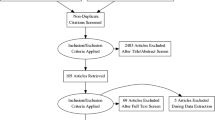Abstract
Participants of the Hungarian training program in mental health promotion described in this paper are human services professionals (mainly education and health professionals, religious and social workers). The aims of the three-year graduate program include the development of students’ professional expertise with a body of knowledge of mental health promotion on the individual, community and social levels and with a mental-health-promoting attitude. Testing the effectiveness of the program must measure a change in this attitude rather than an increase in academic knowledge. The instrument here presented is based on a case description, relevant to the students’ occupation. Content analysis methods and a special scoring system can be employed in the interpretation and evaluation of the answers to the mostly open-ended questions. The longitudinal study presents a comparative analysis of the four occupational groups named above. In addition to results, the paper also discusses difficulties and suggestions for further research.
Similar content being viewed by others
References
Caplan, G. (1974). Support systems and community mental health. New York: Behavioral Publications.
Caskie, G. I. L., & Willis, S. L. (2006). Research design and methodological issues for adult development and learning. In C. Hoare (Ed.), Handbook of adult development and learning (pp. 52–70). New York: Oxford University Press.
Hankiss, E. (1990). East European alternatives. Oxford: Clarendon Press.
Hansen, C. D. (1995). Occupational cultures: Whose frame are we using? The Journal for Quality and Participation, 18(3), 60–64.
Harmatta, J., & Csáky-Pallavicini, R. (2008). Unravelled chapters of our common past. European Journal of Mental Health, 3, 63–65.
Hofstede, G., & Hofstede, G. J. (2005). Cultures and organizations: Software of the mind. New York: McGraw-Hill.
Ittzés, A., Ehmann, B., & Szabó, T. (2004). A tartalomelemzés alkalmazási lehetőségei a mentálhigiénés szemlélet összetevőinek feltárásában [Content analytic methods in mapping the components of a mental-health-promoting attitude]. Mentálhigiéné és Pszichoszomatika, 5, 227–243.
Ittzés, A., Szabó, T., Vári, A., Török, Sz., & Tomcsányi, T. (2006). A mentálhigiénés szemlélet fejlődése: A Semmelweis Egyetemen folyó mentálhigiénés szakirányú továbbképzés hatékonyság-vizsgálatáról [The development of a mental-health-promoting attitude: On the effictiveness testing of a training program in mental health promotion at Semmelweis University]. Iskolakultúra, 16(10), 98–110.
Ittzés, A., Csáky-Pallavicini, R., & Tomcsányi, T. (2007). Methodological contribution to effectivity studies of training programs in community mental health promotion. European Journal of Mental Health, 2, 49–65.
Leathard, A. (Ed.). (1994). Going inter-professional: Working together for health and welfare. London, New York: Routledge.
Stratton, P., Preston-Shoot, M., & Hanks, H. (1990). Family therapy training and practice. Birmingham: Ventura Press.
Tomcsányi, T. (1996). Mentálhygiéné és pasztorálpszichológia [Mental health and pastoral psychology]. Unpublished CSc dissertation, Hungarian Academy of Sciences, Budapest.
Tomcsányi, T. (2000). Mental health promotion through the dialogue of different philosophies and professions: An interdisciplinary training programme in mental health. Mental Health, Religion & Culture, 3, 143–155.
Tomcsányi, T., Ittzés, A., Ehmann, B., Csáky-Pallavicini, R., Szabó, T., & Török, Sz. (2003). Die Prinzipien des berufsbegleitenden Seminars und die empirische Untersuchung seiner Effektivität [The principles of an activity supervision seminar and an empirical study of its effectiveness]. In T. Tomcsányi (Ed.), Gesellschaft und Gesundheit. Mentalhygiene in Forschung, Theorie, Praxis und Ausbildung (pp. 115–133). Freiburg im Breisgau: Lambertus.
Tomcsányi, T., Csáky-Pallavicini, R., Ittzés, G., Semsey, G., & Török, P. (2006). Health promotion strategy and primary prevention program at Semmelweis University. European Journal of Mental Health, 1, 25–44.
Tomka, M. (2008). Wie geht es den Menschen in den Transformationsländern? [How do people do in transition countries?]. In H. Renöckl, P. Morciniec, & A. Rammer (Eds.), Umbrüche gestalten. Sozialethische Herausforderungen im neuen Europa (pp. 44–58). Wien-Würzburg: Echter.
Wesseler, M. (2009). Evaluation und Evaluationforschung [Evaluation and evaluation research]. In R. Tippelt & A. von Hippel (Eds.), Handbuch Erwachsenenbildung/Weiterbildung (3rd ed., pp. 1031–1048). Wiesbaden: VS Verlag für Sozialwissenschaften.
Author information
Authors and Affiliations
Corresponding author
Rights and permissions
About this article
Cite this article
Ittzés, A., Tomcsányi, T., Szabó, T. et al. Recent Findings in the Effectiveness Testing of an Interdisciplinary Training Program in Mental Health Promotion. Community Ment Health J 47, 498–505 (2011). https://doi.org/10.1007/s10597-010-9360-y
Received:
Accepted:
Published:
Issue Date:
DOI: https://doi.org/10.1007/s10597-010-9360-y




